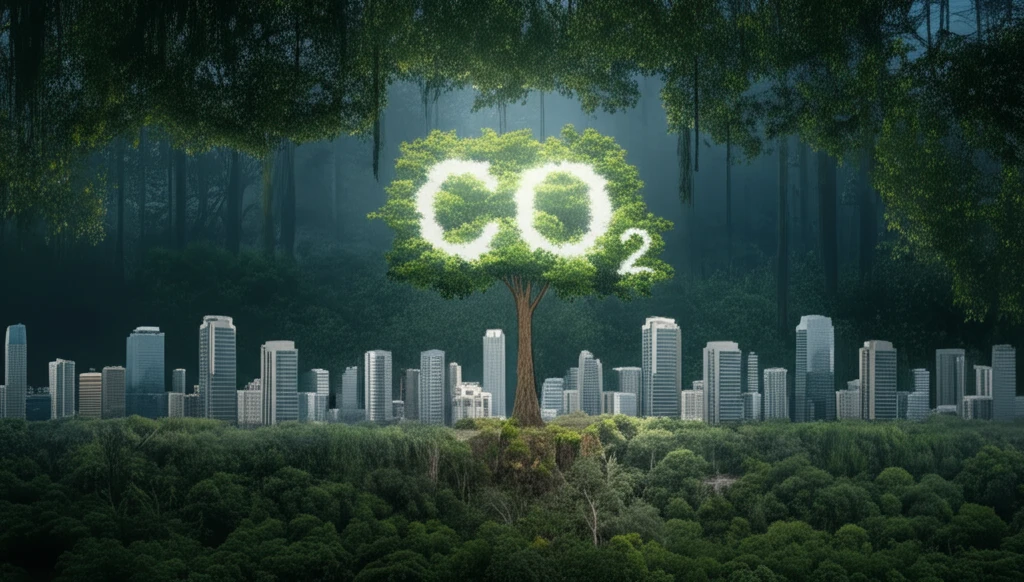
Is India Ready to Lead on Climate? Unpacking Its Evolving Relationship with CO2 Emissions
"A deep dive into India's economic growth, energy consumption, and its commitment to global climate agreements. Can the nation balance development with environmental responsibility?"
Climate change is one of the most pressing challenges of our time, with carbon dioxide (CO2) emissions as a primary driver. The international community has recognized the need for collective action, leading to agreements like the Kyoto Protocol and the Paris Agreement. These treaties aim to reduce greenhouse gas emissions and mitigate the impacts of a warming planet.
India, as one of the world's fastest-growing economies and a significant contributor to global emissions, plays a crucial role in these efforts. However, balancing economic development with environmental responsibility presents a unique set of challenges. The country faces the dual imperative of lifting millions out of poverty while simultaneously reducing its carbon footprint.
This article examines India's evolving relationship with CO2 emissions, exploring the factors that influence its trajectory and the effectiveness of its climate policies. We'll delve into the impact of economic growth, energy consumption, and international agreements on India's commitment to a sustainable future. Are India's actions aligning with its global commitments, and what more needs to be done?
The Kyoto Protocol: A Turning Point?

The Kyoto Protocol, adopted in 1997, marked a significant step in international climate policy. It set binding emission reduction targets for developed countries, while developing nations like India were encouraged to voluntarily limit their emissions as they reached certain income thresholds. This framework recognized the historical responsibility of industrialized nations in contributing to climate change.
- Economic Growth vs. Emission Reduction: India's rapid economic expansion has led to increased energy demand, often met by carbon-intensive sources like coal.
- Energy Consumption Patterns: Traditional, high-carbon fossil fuels used for power, transportation, heating, and cooking in homes and businesses have resulted in high emissions for the Indian economy.
- Kyoto Protocol Impact: It remains debatable whether the Protocol effectively curbed emissions. It also brought questions about the commitment of developing countries like India to address global environmental issues.
Balancing Growth and Sustainability: A Path Forward
India's journey towards a low-carbon future is complex and multifaceted. While challenges remain, the country's growing awareness of climate change and its commitment to international agreements provide a foundation for progress. The key lies in balancing economic growth with environmental responsibility, promoting cleaner energy sources, and fostering international cooperation to achieve a sustainable future for all.

